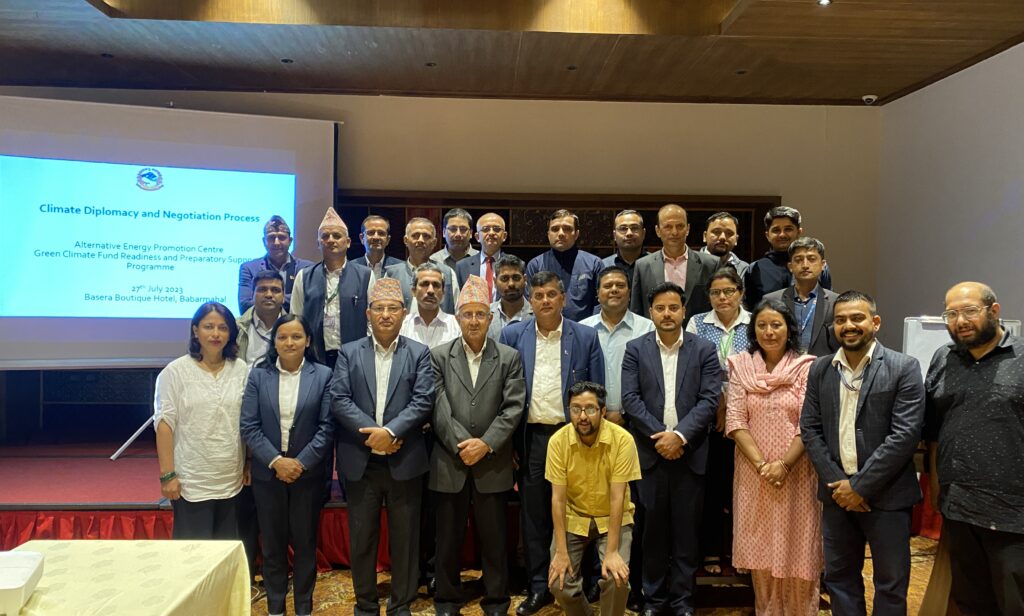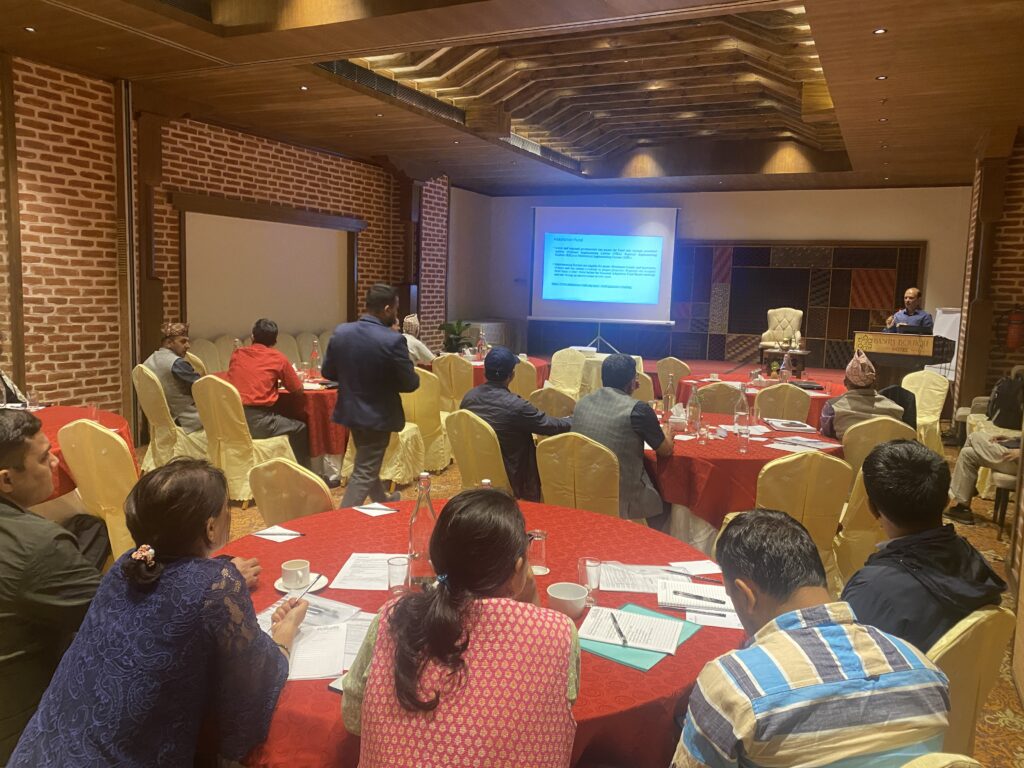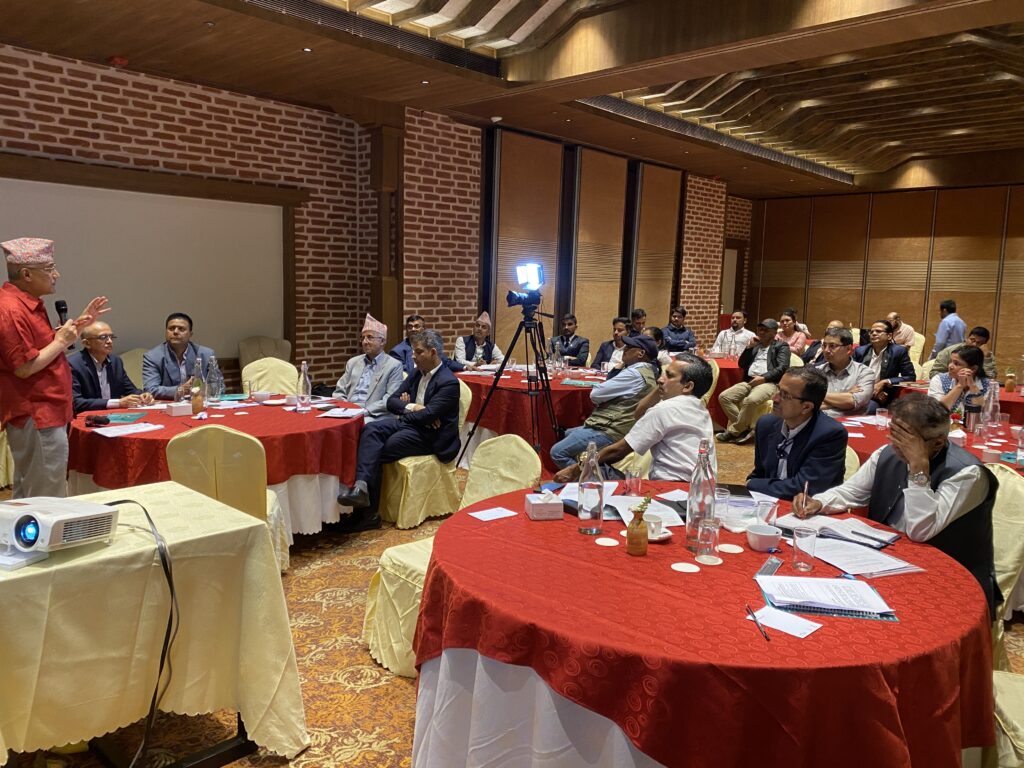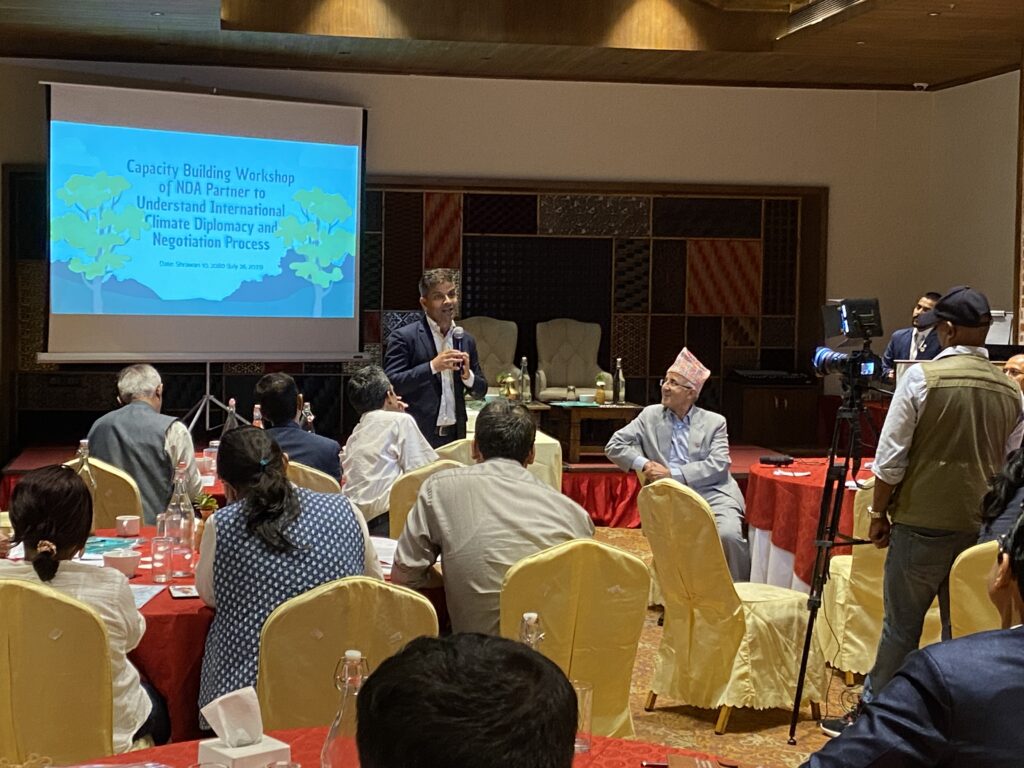AEPC & CGED-Nepal/Eta/PSPL JV organize Capacity Building Workshop; July 26-28, 2023; Kathmandu

AEPC & CGED-Nepal/Eta/PSPL JV organize Capacity Building Workshop; July 26-28, 2023; Kathmandu
Madhav Karki, Team Leader
Under the GCF/NDA supported“Capacity Building of National Designated Authority, Development of Nepal’s Country Programme to the Green Climate Fund and Developing Strategies for Private Sector Investment for Low Emissions and Resilience Program”, the AEPC & CGED-Nepal/Eta/PSPL JV jointly organized a three day Capacity Building Workshop targeting the Upcoming Cop28 for the NDA partners during July 26-28, 2023 in Kathmandu.
- The Workshop planned the following topics for sharing and discussion:
- Capacity Building of National Designated Authority, Development of Nepal’s Country Programme to the Green Climate Fund and Developing Strategies for Private Sector Investment for Low Emissions and Resilience
- NDA’s overall coordination and oversight role from project proposal entry and exit through the proposed NDA-GCF process; Approach to build capacity of stakeholders to design and develop project proposal for GCF Funding.
- Nepal’s country NDA i.e., the Ministry of Finance (MoF) specifically the nodal division the International Economic Cooperation and Coordination Division (IECCD) within the MoF. The US heading the Climate Focal Point is the concerned supervisor/contact point for this activity
- NDA’s capacity to understand and enhance the international climate diplomacy and negotiation process. Under this we will reflect on UNFCCC COP 26 and COP 27 decisions and also share the tentative COP28 priority for Nepal
Objective and content of the Workshop:
The three (3 )day workshop objective was to ‘strengthen the institutional capacities of country NDA and systems that enables them to fulfil their roles, responsibilities and policy requirements in the area of climate finance, GCF project and programme development, monitoring, evaluation and oversight’.
In terms of the content, the three-day training workshop focused on: a) NDA’s capacity to understand and enhance the international climate diplomacy and negotiation process under which the aim will be to take the participants through the UNFCCC process and how decisions are made in annual conference of parties (COP) by giving an example of COP26 and COP27. Climate diplomacy, Climate change negotiation and climate finance were the topics covered on Day1, 2 and 3 respectively.

Approach and methods:
The workshop was designed to be demand driven; broad-based and holistic covering institutional, systemic, technological, behavioural and attitudinal aspects; focused on multi-sectors and multiple stakeholders and closely interfaced with the latest science and knowledge base targeting identified capacity gaps, needs, situation and available human and financial resources.
The method included a) dissemination of basic information on climate change, and related policies and programmes; b) review national and international scenarios and paradigms that are changing and shifting constantly; c) delivering tailored knowledge materials and modular trainings and providing strategic directions in NDA’s capacity building programme.
Approach and methods: The workshop was designed to be demand driven; broad-based and holistic covering institutional, systemic, technological, behavioural and attitudinal aspects; focused on multi-sectors and multiple stakeholders and closely interfaced with the latest science and knowledge base. Targeting identified capacity gaps, needs, situation and available human and financial resources.

The workshop process
The process adopted was an interactive dialogues and sharing diverse knowledge, experiences and perspectives. For example the three day session – mindful of the importance of the forthcoming COP28- targeted core negotiators from the Ministry of Forest and Environment (MoFE) and discussed on the expected agenda of the COP28, the communication from host and incoming COP presidency – The UAE Government and on how Nepal should define its priority and negotiation strategy to harness the maximum benefits from this important annual event. The workshop was delivered in an open, flexible and, opportunistic manner so that any new expert resources if available, was readily utilised. This method made it possible to have inputs from the Hon. Dr. Prabhu Budhathoki, Member, NPC and Secretary Dr/ Rewati Raman Poudel, Secretary, MoFE as well as other critical resource persons. Overall, the three day workshop was highly successful.

*****************
